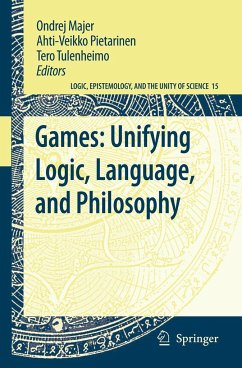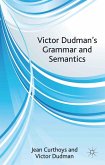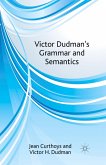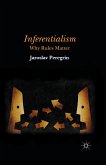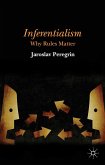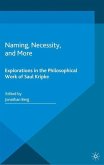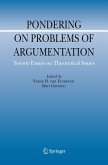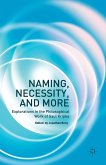This volume presents mathematical game theory as an interface between logic and philosophy. It provides a discussion of various aspects of this interaction, covering new technical results and examining the philosophical insights that these have yielded.
Organized in four sections it offers a balanced mix of papers dedicated to the major trends in the field: the dialogical approach to logic, Hintikka-style game-theoretic semantics, game-theoretic models of various domains (including computation and natural language) and logical analyses of game-theoretic situations.
This volume will be of interest to any philosopher concerned with logic and language. It is also relevant to the work of argumentation theorists, linguists, economists, computer scientists and all those concerned with the foundational aspects of these disciplines.
OndrejMajer,Ahti-VeikkoPietarinen,andTeroTulenheimo 1 Games and logic in philosophy Recent years have witnessed a growing interest in the unifying methodo- gies over what have been perceived as pretty disparate logical 'systems', or else merely an assortment of formal and mathematical 'approaches' to phi- sophical inquiry. This development has largely been fueled by an increasing dissatisfaction to what has earlier been taken to be a straightforward outcome of 'logical pluralism' or 'methodological diversity'. These phrases appear to re ect the everyday chaos of our academic pursuits rather than any genuine attempt to clarify the general principles underlying the miscellaneous ways in which logic appears to us. But the situation is changing. Unity among plurality is emerging in c- temporary studies in logical philosophy and neighbouring disciplines. This is a necessary follow-up to the intensive research into the intricacies of logical systems and methodologies performed over therecent years. The present book suggests one such peculiar but very unrestrained meth- ological perspective over the eld of logic and its applications in mathematics, language or computation: games. An allegory for opposition, cooperation and coordination, games are also concrete objects of formal study.
Organized in four sections it offers a balanced mix of papers dedicated to the major trends in the field: the dialogical approach to logic, Hintikka-style game-theoretic semantics, game-theoretic models of various domains (including computation and natural language) and logical analyses of game-theoretic situations.
This volume will be of interest to any philosopher concerned with logic and language. It is also relevant to the work of argumentation theorists, linguists, economists, computer scientists and all those concerned with the foundational aspects of these disciplines.
OndrejMajer,Ahti-VeikkoPietarinen,andTeroTulenheimo 1 Games and logic in philosophy Recent years have witnessed a growing interest in the unifying methodo- gies over what have been perceived as pretty disparate logical 'systems', or else merely an assortment of formal and mathematical 'approaches' to phi- sophical inquiry. This development has largely been fueled by an increasing dissatisfaction to what has earlier been taken to be a straightforward outcome of 'logical pluralism' or 'methodological diversity'. These phrases appear to re ect the everyday chaos of our academic pursuits rather than any genuine attempt to clarify the general principles underlying the miscellaneous ways in which logic appears to us. But the situation is changing. Unity among plurality is emerging in c- temporary studies in logical philosophy and neighbouring disciplines. This is a necessary follow-up to the intensive research into the intricacies of logical systems and methodologies performed over therecent years. The present book suggests one such peculiar but very unrestrained meth- ological perspective over the eld of logic and its applications in mathematics, language or computation: games. An allegory for opposition, cooperation and coordination, games are also concrete objects of formal study.

